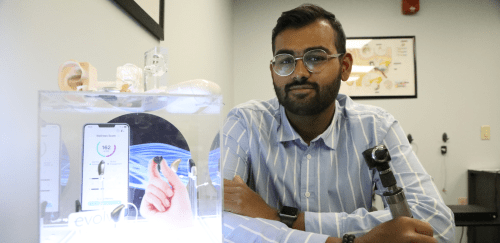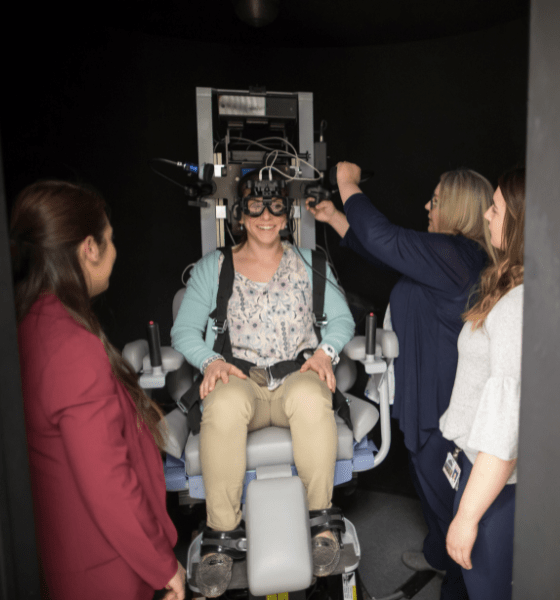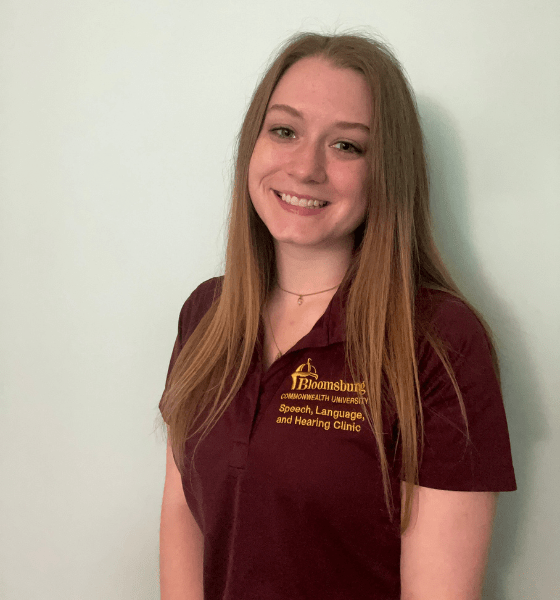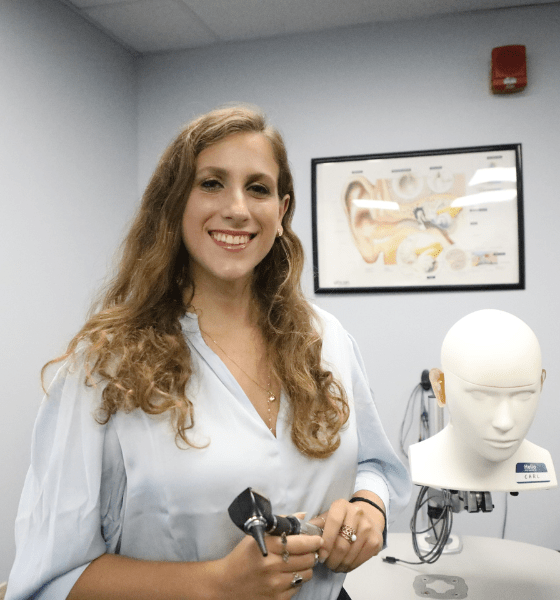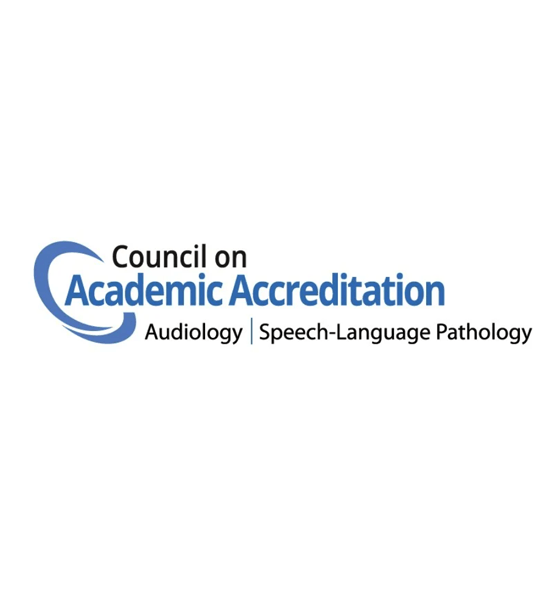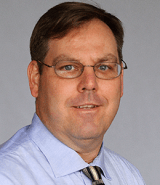Practicum
Practicum opportunities are available through the Audiology Clinic located in Centennial Hall on the Bloomsburg campus and through other affiliated agencies. Affiliations are also in place with more than 80 hospitals, clinics, public schools and private practice settings.
Services offered at the on-campus Audiology Clinic:
- Diagnostic evaluations — Pure tone air/bone conduction, speech audiometry, tympanometry, acoustic reflex studies, otoacoustic emissions
- Electrophysiologic evaluations — Auditory evoked potentials, stacked auditory evoked potential, steady state evoked potential, electrocochleography, visual evoked, somatosensory evoked
- Hearing Aid/Assistive Devices — Selection, verification and orientation of digital technology and assistive devices across the life span
- Hospital Clinic — Newborn hearing screening, occupational medicine and in and out patient services
- Aural Rehabilitation — Habilitative and rehabilitative services and counseling with a patient-centered focus across the lifespan
- Central Auditory Processing — Evaluations and interventions
- Cochlear Implant Clinic — Selection, programming, and troubleshooting
- Electrophysiology Clinic Diagnostic Testing — otoacoustic emissions, auditory evoked potentials, visual evoked, somatosensory evoked, stacked auditory evoked potential, electrocochleography, steady state evoked potential
- Tinnitus Clinic — Diagnostics, intervention services that include sound generators, counseling, and tinnitus retraining therapy
- Vestibular/Balance Clinic — Diagnostic (videonystagmography, rotational chair, dynamic computerized posturography, vestibular myogenic evoked potentials) and rehabilitative services

